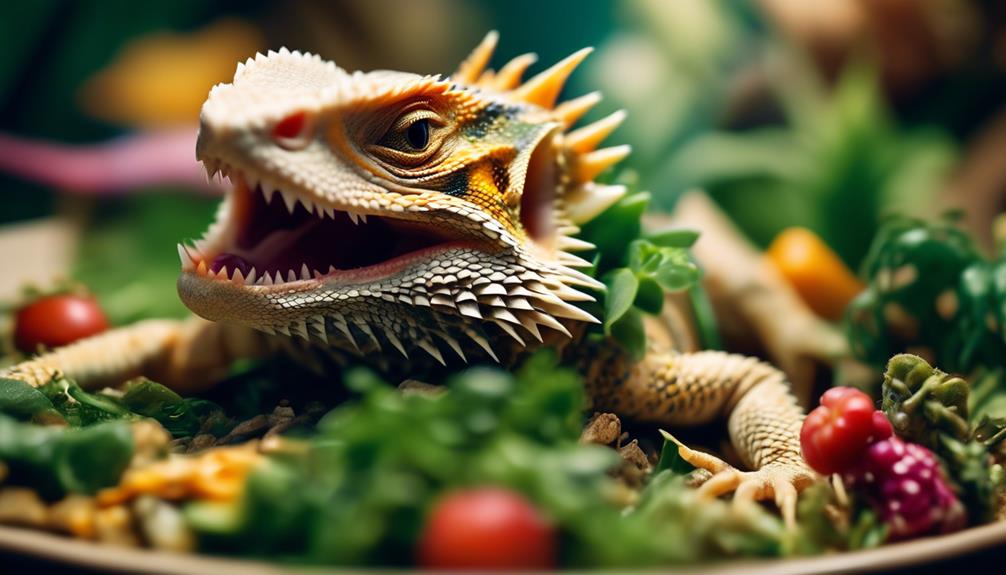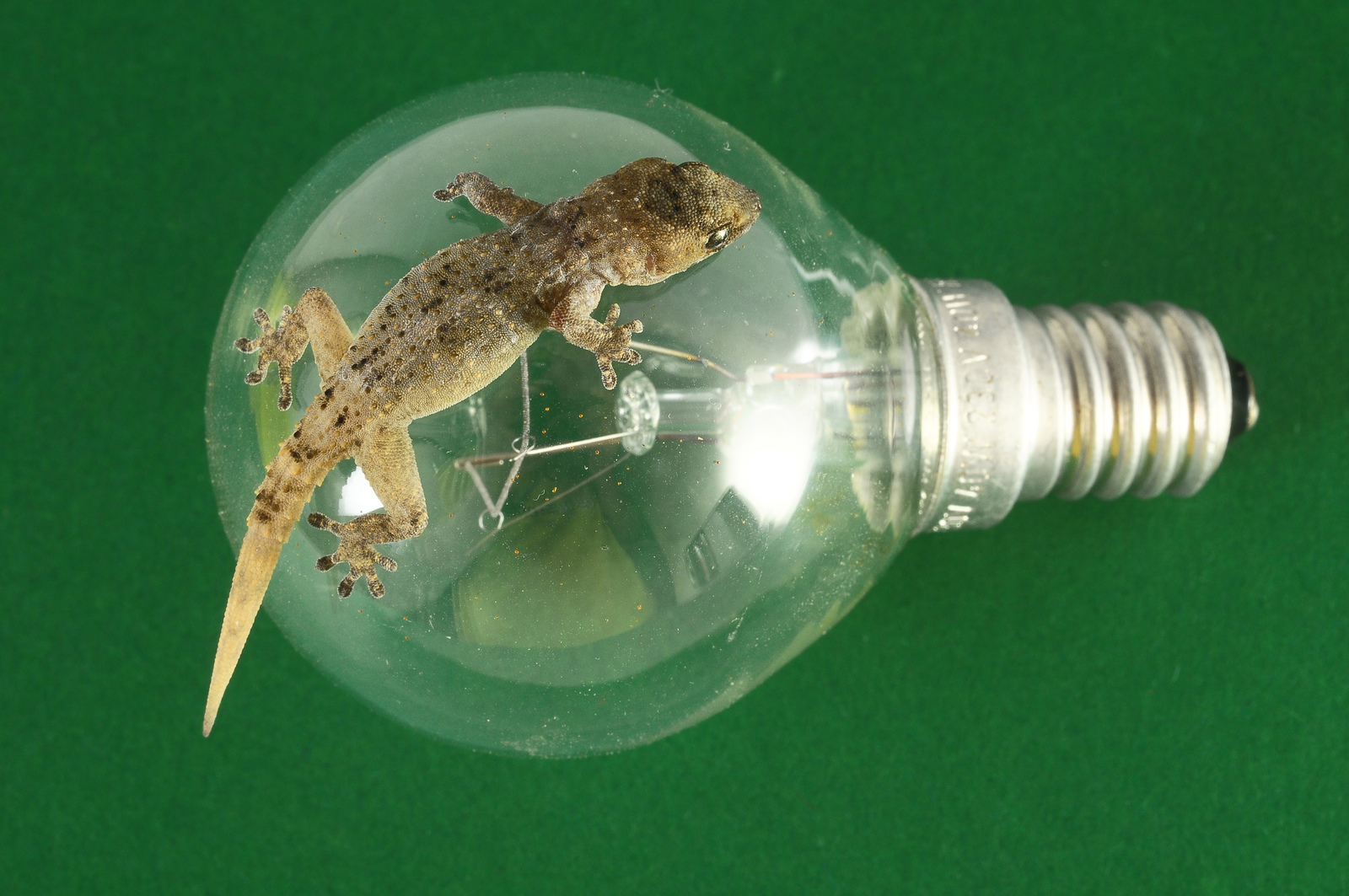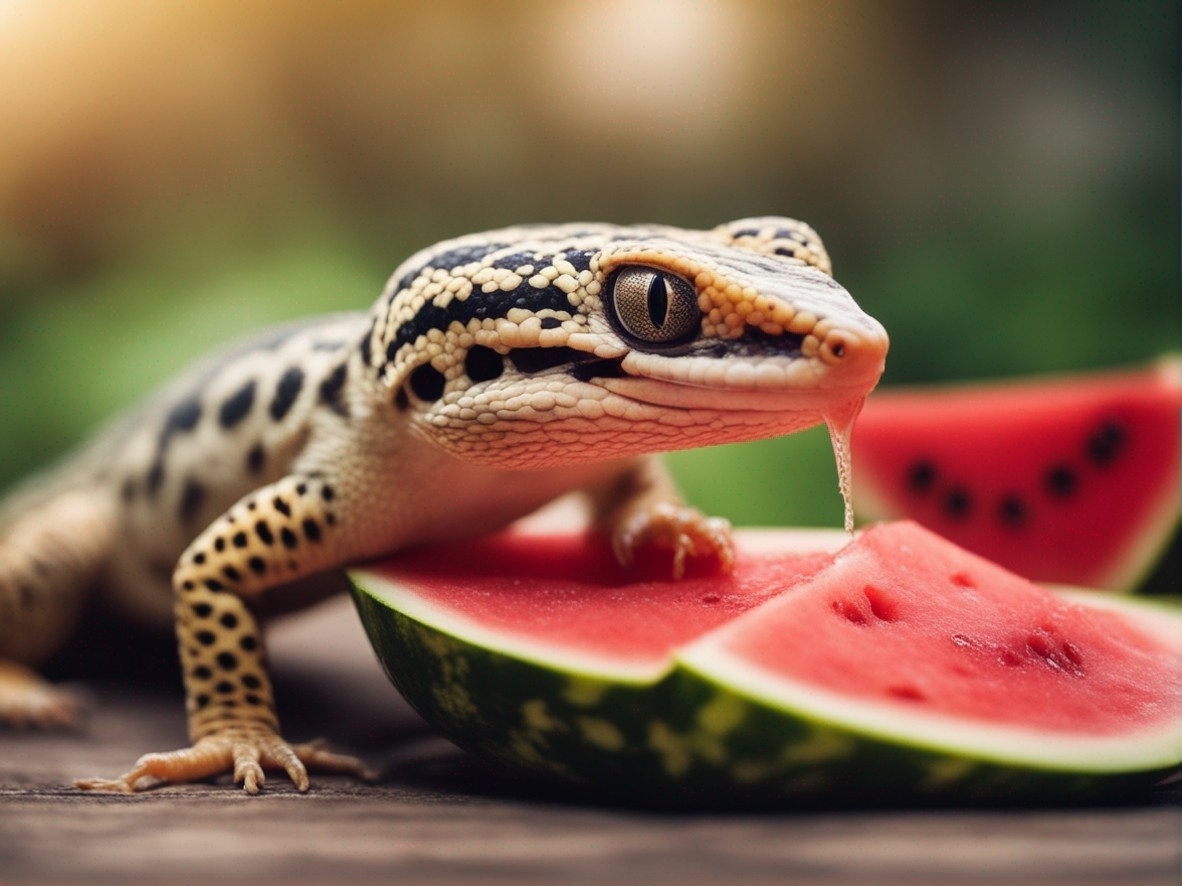Are you wondering if leopard geckos can eat silkworms? On the one hand, these small lizards are often kept as household pets; yet on the other, they have biological needs that must be met in order to stay healthy. This article will delve deeper into this juxtaposition of pet and animal by examining the nutritional value of silkworms, how to safely feed them to leopard geckos, potential health benefits associated with doing so, and what other food sources may be used. By understanding the role of silkworms in a leopard gecko’s diet, both owners and their beloved pets can benefit from an enhanced life experience.
Key Takeaways
- Silkworms are high in protein and essential fatty acids, making them a nutritious food source for leopard geckos.
- Feeding silkworms to leopard geckos can contribute to improved skeletal development and overall health.
- It is important to handle and feed silkworms safely, and to serve an appropriate amount based on the gecko’s size to avoid overfeeding.
- Offering a variety of food types, including silkworms, ensures that the gecko’s nutritional needs are met and provides stimulation.
Overview of Leopard Geckos
You’ll often hear that leopard geckos are a great pet choice, since they’re low-maintenance and can live for up to 20 years! Native to the deserts of Central Asia and the Middle East, these unique lizards adapt well to captivity. They don’t need a large space, but their enclosure should be spacious enough for them to move around in. Leopard geckos require temperatures between 75-85 degrees Fahrenheit during the day and slightly lower temperatures at night. Properly maintaining this temperature range is essential to your pet’s health and well-being. Additionally, leopard geckos need adequate humidity levels in their habitat, as well as varied substrate material such as sand or soil so they can dig burrows and hideouts.
In addition to providing an appropriate environment for your pet leopard gecko, you must also ensure that they are receiving adequate nutrition. While insects are the primary source of food in the wild, there are other options available when it comes to feeding your pet lizard. Silkworms provide many nutritional benefits because of their high protein content – something that is essential for your leopard gecko’s growth and development. With this information in mind, let’s explore the nutritional value of silkworms further so you can make an informed decision about what to feed your beloved pet.
Nutritional Value of Silkworms
Silkworms are a nutritional powerhouse, boasting high levels of protein and essential fatty acids; their creamy texture is sure to have your taste buds dancing! Silkworms are widely used as a feeder insect for many reptiles, including leopard geckos. As such, it’s important to understand the nutritional value they offer.
| Nutrient | Amount Per 100g |
|---|---|
| Protein | 28.63g |
| Fat | 2.47g |
| Carbohydrates | 5.16g |
Silkworm digestion begins in the crop, which is an area of storage within the insect where food can be softened by digestive enzymes and then sent to other parts of the gut for further processing. The lifecycle of these insects goes from egg to larvae (caterpillar), pupa (cocoon) and finally adult moth before repeating again from egg stage onwards. This means that during each stage, different vitamins and minerals become available as the caterpillar grows into its mature form.
The balance of these nutrients make silkworms an excellent source for nourishing leopard geckos with all essential amino acids needed for healthy growth and development. Whether you’re looking for a calcium-rich snack or something packed with iron, silkworms provide a tasty solution that will help keep your pet fit and thriving! Moving on from here we’ll discuss how best to feed silkworms to leopard geckos so they get proper nutrition while enjoying their mealtime treats!
Feeding Silkworms to Leopard Geckos
Providing your pet with a nutritious meal is easy when you feed them silkworms! Silkworms offer an excellent source of nutrition for leopard geckos, and they can be fed as part of their regular diet. It’s important to provide variety in the type of food offered, and silkworms are an ideal way to do this. When feeding silkworms to leopard geckos, it’s important to handle them safely; they should be kept in a separate container from other insects and handled using tweezers or tongs. You should also avoid overfeeding your leopard gecko with too many silkworms at once. The amount served should correspond to the size of the gecko, so that they have enough energy for activity without becoming overweight. Silkworms also contain calcium which is essential for healthy skeletal development in reptiles. Offering variety in terms of food types helps ensure that all nutritional needs are being met while providing entertainment and stimulation through different textures and tastes. By following these simple guidelines while feeding silkworms to your leopard gecko, you can guarantee optimal health benefits and a happy reptilian pet!
Potential Health Benefits
Offering silkworms to your pet can bring a range of health benefits, from improved skeletal development to increased stimulation and variety. When considering the potential benefits of feeding silkworms, it is important to ensure that they are handled safely with hygienic practices and incorporated into the diet in appropriate portion sizes. Silkworms are a great source of calcium and zinc for leopard geckos, which can help improve their bone development. Additionally, eating different kinds of food helps keep leopard geckos active and stimulated as they explore new flavors and textures. While it is important to make sure that silkworms make up only a small part of their diet, incorporating them into it can provide valuable health rewards.
Most importantly, when introducing any new food item into your pet’s diet it is essential to practice safe handling techniques such as washing hands thoroughly before and after handling the food source and making sure that all equipment used is properly sanitized between uses. By taking these precautions, you can be confident that your pet will receive all the nutritional benefits without any risks associated with poor hygiene practices. With careful consideration for safety protocols and portion size control, incorporating silkworms into your pet’s diet can be an excellent way to promote good overall health.
Naturally occurring foods such as crickets or other insects should form the basis of a leopard gecko’s diet but occasionally offering treats like silkworms provides many beneficial nutrients while giving them something special to look forward to – not just nutritionally but also mentally stimulating them through exploration!
Other Foods to Feed Leopard Geckos
In addition to providing silkworms, you should also consider offering other nutritious foods to your pet in order to ensure their diet is varied and well-rounded. Leopard geckos are omnivorous, so they typically eat both plant and animal matter. Crickets are one of the most common food sources for leopard geckos. They can also be fed mealworms or waxworms as an occasional treat. You may want to supplement their diet with fresh vegetables like bell peppers, squash, collard greens and kale. Be sure to cut them into small pieces so your pet can easily consume them.
Vitamin supplements are important for the health of your leopard gecko. A multivitamin powder designed specifically for reptiles should be sprinkled on their food several times a week. Calcium supplements should also be used in order to prevent metabolic bone disease and other nutritional deficiencies that could affect their overall health.
A wide variety of fruits can also be given as treats such as apples, bananas, grapes, melons and berries. However, these should only make up a small portion of their overall diet since they contain more sugar than other foods that provide essential nutrients for your pet’s needs. For best results, use fresh rather than canned or frozen fruits when feeding them to your leopard gecko.
By providing a balanced diet including both plant-based and animal-based foods along with vitamin supplements tailored for reptiles, you will help ensure that your pet stays happy and healthy long into adulthood!
Frequently Asked Questions
What type of environment do leopard geckos need?
Providing a proper environment for your leopard gecko is key to keeping them healthy and happy. Heat should be provided with an under tank heater, and humidity levels should remain moderate. Stress should be avoided by giving the gecko plenty of hiding spots and by not handling it too often. A metaphor to emphasize this point would be that caring for your pet leopard gecko is similar to gardening; you need to provide the right conditions so they can thrive!
Do silkworms require any special care when feeding them to leopard geckos?
When feeding silkworms to leopard geckos, be sure to monitor their feeding frequency and temperature. Providing the proper environment can ensure a healthy diet for your pet. Be attentive and serve with care!
How often should leopard geckos be fed silkworms?
Your leopard gecko’s diet should include frozen silkworms for optimal nutritional value. While their frequency may vary, aim to provide them once or twice a week – they’ll love it!
Are there any risks associated with feeding silkworms to leopard geckos?
Yes, there are risks associated with feeding silkworms to leopard geckos. Breeding silkworms have different nutritional needs than wild insects and may not provide enough vitamins and minerals. Additionally, the high fat content in some species can be dangerous for your gecko’s health. Be sure to research the nutrition of any breed before feeding it to your pet.
Are there any alternatives to silkworms for feeding leopard geckos?
You can provide leopard geckos with a varied diet as an alternative to silkworms. For example, crickets, waxworms, and mealworms are all suitable options. An appropriately-varied diet is essential for the health of your leopard gecko – so make sure you include different foods in their diet.
Conclusion
You’ve learned that leopard geckos can benefit from eating silkworms. They are a great source of nutrients and vitamins to help keep your pet gecko healthy, while adding some variety to their diet. Feeding them a balanced diet of silkworms and other recommended foods will ensure they live a long and happy life. Symbolically, the silkworm represents nourishment for your gecko – providing them with the essential nutrition they need to thrive.


